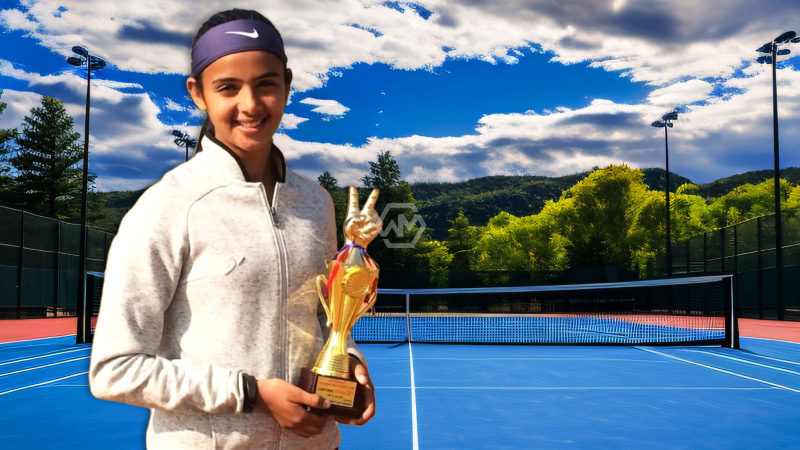- 25-year-old Radhika Yadav was shot dead by her father in Gurugram amid disputes over her independent tennis training sessions.
- Police confirmed she did not run an academy but rented courts, which her father disapproved of.
- The killing was not linked to her viral video; instead, it stemmed from deep family discord and control issues.
The tragic murder of former state-level tennis player Radhika Yadav by her father Deepak Yadav has sparked public outrage and sorrow.
Police have dismissed online speculation linking Radhika’s death to a viral music video she appeared in, stating there was no connection.
Fractured Bonds: A Daughter’s Dream and a Father’s Deadly Control
Radhika’s path in tennis was one of dedication and resilience. Backed by years of rigorous training and family investment—estimated at over ₹2.5 crore—she envisioned a future helping others reach similar heights. She didn’t operate a formal institution but instead worked flexibly, booking different courts to train others. Her approach highlighted the evolving nature of modern coaching, rooted in freedom and adaptability.
Despite his financial independence, Deepak Yadav struggled with social criticism and perceived loss of authority. Friends and relatives reportedly mocked his dependence on Radhika’s earnings, even if untrue, eroding his self-esteem. The police believe that this constant ridicule contributed significantly to his mental instability in the days leading up to the murder.
On the morning of the incident, the household was preparing for Radhika’s mother’s birthday—a day that turned from celebration to catastrophe. Deepak used his licensed pistol to fire five shots, four of which fatally struck Radhika. One bullet lodged into the lower kitchen wall. Police recovered all spent cartridges from the scene and have taken Deepak into custody after his confession.
The case has shocked the community and exposed underlying issues often ignored in families: control, emotional manipulation, and unspoken resentments. Radhika’s death was not just a personal loss but a public reckoning with how ambition, when unsupported by understanding, can be met with tragic consequences. Her legacy, however, lies in her courage to persist despite familial resistance.
Radhika Yadav’s untimely death is a grim reminder of how unresolved familial tensions and traditional expectations can destroy even the most hopeful futures.
“When we long for life without difficulty, remind us that oaks grow strong in contrary winds.” — Thomas Monson



